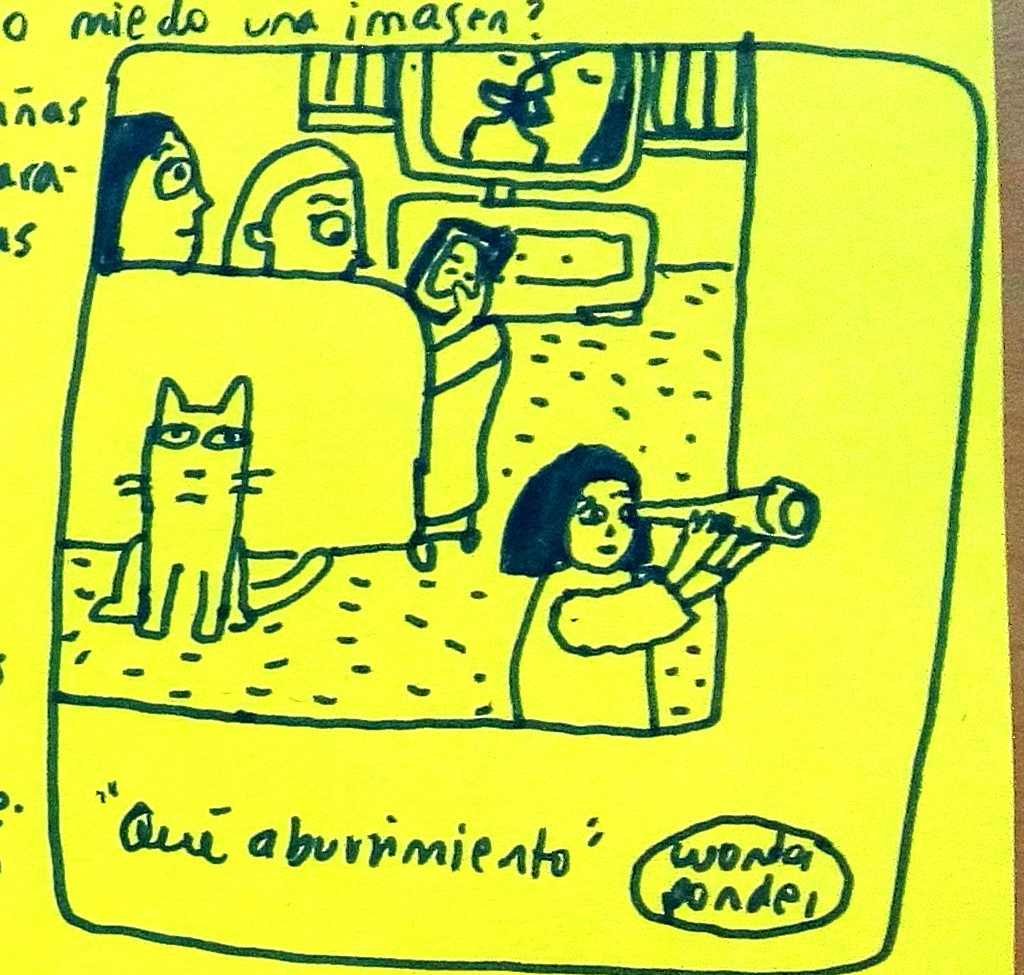Is reality boring? "Pinch me!", the 4th title in the Wonder Ponder series of Visual Philosophy for Children on Reality, Imagination and Dream. Oh yes!
Ellen Duthie
One of the hundreds of exploratory sketches (by Daniela Martagón) that we are producing during the creation process of "Pinch Me!",the fourth title of the Wonder Ponder series of Visual Philosophy for Children. Is reality boring?
We have just entered the intense and stimulating phase of creation/testing/changing/producing the next Wonder Ponder Visual Philosophy for Children title.
"Pinch Me!" will invita readers of all ages to wonder and ponder about reality, imagination and dream.
How can we know for sure that we are not dreaming? The test of pinching oneself or hitting oneself seems to be almost intuitive, universal. From a very young age, it is common for children to appeal to pain and to how we feel pain when we are awake and when we are dreaming, as proof that we are not dreaming, just like Locke pointed out to Descartes, when he suggested he should consider the difference between being in a fire and dreaming that we are in a fire, as an example that indeed there would seem to be indicators of reality that allow us to distinguish between reality and dream.
What is real and what isn't real? How can we tell one from the other? What makes something real? What do all real things have in common?
"He needs some cutlery and a chair, please". One of the hundreds of exploratory sketches (by Daniela Martagón) that we are producing during the creation process of "Pinch Me!",the fourth title of the Wonder Ponder series of Visual Philosophy for Children. "Real" and "pretend".
And how can we access reality? Pinch me! will explore the reliability of our senses, the relationship between representations of reality and reality itself, the testimony of others of faraway or nearby realities we have not ourselves presenced.
Does reality matter? Are real thing more important than imaginary things? In what ways are they and in what ways aren't there more important?
Pinch Me! will also provide readers with plenty of opportunities to explore virtual reality, media reality, the reality we project and the reality we experience.
In the new title we also explore the differences between "real" and "pretend" things.
And we ask and provoke lots of questions, of course. Are there different levels of reality? Is our memory a reliable witness of reality? Are some senses more reliable than others? Could we come up with a sense that might give us a more "perfect" access to reality? What would the sense be like? Is it possible to make up reality? If you behave badly in a dream, does that mean you are "bad"? And much, much, much more.
In a few months (May 2018), Pinch Me!
Other titles in the Visual Philosophy for Children series: http://www.wonderponderonline.com/shop

